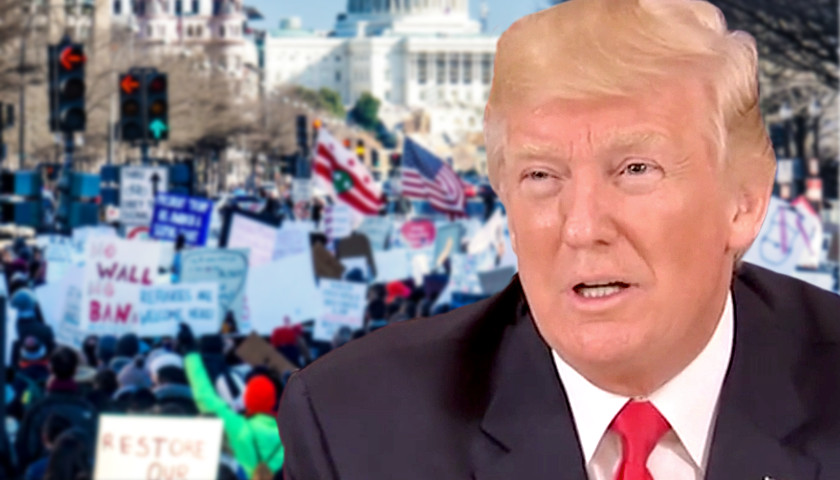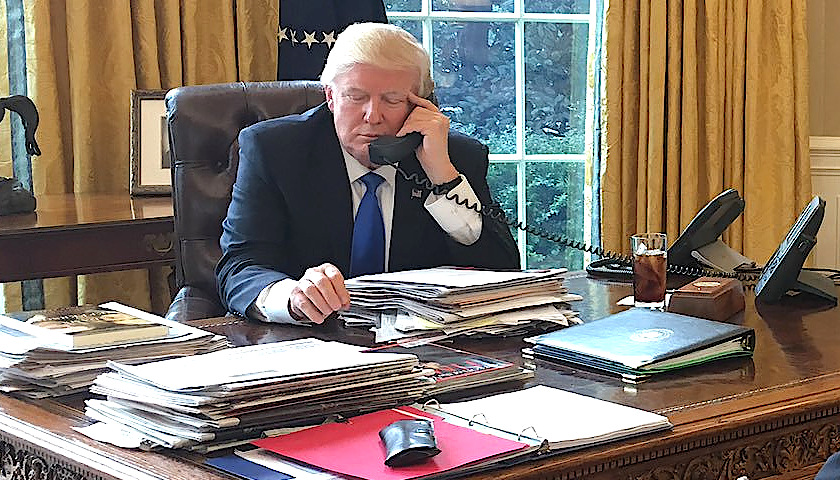by Masood Farivar
The U.S. Supreme Court on Tuesday narrowly upheld the Trump administration’s travel restrictions on citizens of five Muslim-majority countries, handing President Donald Trump a victory in enforcing one of his most controversial policies.
In a 5-4 decision, the court ruled that the president has the authority under U.S. immigration laws to limit travel from foreign countries on national security grounds, as the Trump administration has argued.
The president “has lawfully exercised the broad discretion granted to him under (Immigration and Nationality Act) to suspend the entry of aliens into the United States,” Chief Justice John Roberts wrote, delivering the majority opinion.
The president has “undoubtedly fulfilled” the requirement under the law that the entry of the targeted aliens “would be detrimental to the interests of the United States,” Roberts wrote.
Roberts wrote that the plaintiffs in the case — the state of Hawaii, the Muslim Association of Hawaii and three residents of the state — failed to demonstrate that the travel order “violates” the establishment clause of the U.S. Constitution, which bars favoring one religion over another.
The court’s four liberal justices dissented.
Under the so-called “travel ban,” issued in September after two earlier orders were blocked by courts, citizens of five Muslim countries – Iran, Libya, Somalia, Syria and Yemen – as well as North Koreans and some individuals linked to the Venezuelan government — are barred from traveling to the United States. (The central African nation of Chad was initially included in the list but was later dropped).
The decision caps off 16 months of fraught court battles between an administration determined to defend the president’s travel order on national security grounds and opponents who decried it as an ideologically driven ban on Muslims.
Trump effused over the ruling, tweeting: “SUPREME COURT UPHOLDS TRUMP TRAVEL BAN. Wow!”
Civil rights groups and immigrant advocates denounced the ruling.
Muslim Advocates, a Washington-based civil rights organization, said the court has affirmed “Trump’s bigoted Muslim ban” and “given a green light to religious discrimination and animus.”
“Trump may have won this round, but we are focused on the next round and will continue to fight until justice prevails and his anti-Muslim agenda is overturned for good,” the group said in a statement.
“This is not the first time the Court has been wrong, or has allowed official racism and xenophobia to continue rather than standing up to it,” the American Civil Liberties Union tweeted.
Originally issued in January 2017, the travel order underwent two subsequent iterations in the face of legal challenges before its final version found its way in the high court last fall.
The first travel order, announced just seven days after Trump took office, imposed a 90-day ban on travelers from seven Muslim-majority countries and a 120-day suspension on refugee admissions but it was blocked by courts.
The second ban, signed on March 6, 2017, dropped Iraq from the list of targeted countries but it too was challenged in court, prompting the administration to appeal the decision to the Supreme Court last June.
The justices agreed to hear arguments in the case in October, while allowing a partial implementation of the order under which the government could bar citizens of the six countries that lacked “bona fide” relationships in the United States.
But the administration preempted the hearing, rolling out yet another travel order in September, this time dropping Sudan and adding Chad, North Korea and Venezuela, making it difficult to challenge the order as a Muslim ban.
The state of Hawaii, the Muslim Association of Hawaii and three residents challenged the third ban in court, arguing that it violated the U.S. Constitution and the Immigration and Nationality Act of 1965. That led the administration to once again appeal the case to the Supreme Court.
At issue in Trump v. Hawaii was whether the latest travel order exceeds the president’s power over immigration enforcement and whether it violates the “establishment clause” by targeting Muslim countries.




